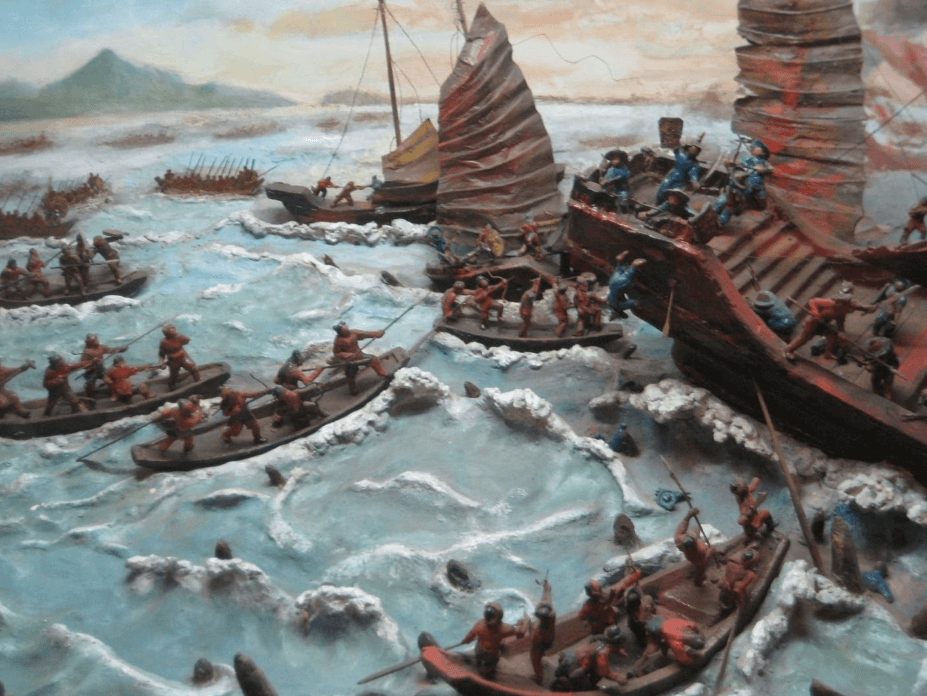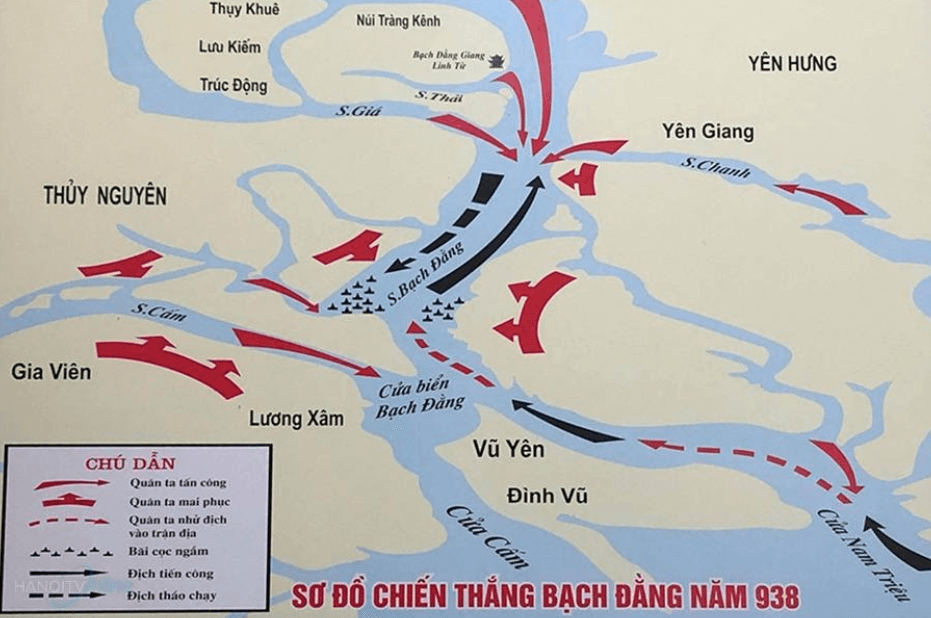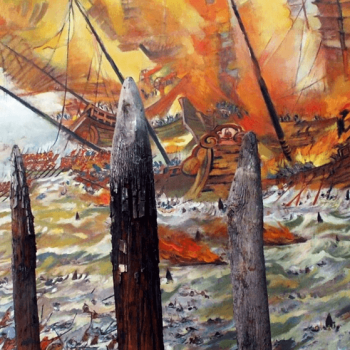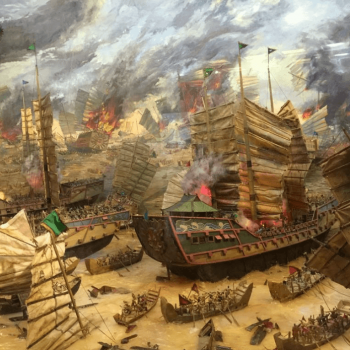A space is not too large, but the Bach Dang estuary which flows through Hai Phong is a special place because it is associated with 3 naval battles and 3 wonders at 3 different historical periods. The first battle was the Bach Dang victory when Ngo Quyen smashed Nam Han troops in 938, marking the peak of Vietnamese military art.

Emperor Ngo Quyen was born on January 12, the year of the Mau Tuat (February 6, 898), in Mong Phu village, Duong Lam, Son Tay town, Hanoi. Born to a powerful family, his father, Ngo Man, became the patriarch of Duong Lam. From an early age, he proved to be a brave man, taught how to shoot a crossbow, to use a sword, military secret. Ngo Quyen grew up while the country gained autonomy, he joined his father to gather forces and become a mighty chieftain in the region. He was Duong Dinh Nghe trusted (Duong was a general of Khuc Thua My and then called himself the Tiet Do Su) and invited to be a General and married Duong’s daughter.
Later, he was Duong Dinh Nghe entrusted to hold Ai Chau - the hometown
of Duong family. In 937, Duong Dinh Nghe was killed by General Kieu Cong Tien to steal the Tiet Do Su throne, causing resentment among the chiefs and the people. Ngo Quyen gathered forces to destroy Kieu Cong Tien. Too panicked, Kieu Cong Tien hurriedly asked for help from Nam Han, Nam Han King - Luu Cung took the opportunity to appoint his son, Liu Huang, to lead the navy across the sea to invade our country.
The country is in danger, on the one hand, Ngo Quyen destroyed Kieu Cong Tien to except for the threat, on the other, mobilizing the people of the whole country to join the resistance. In the estuary of Bach Dang river, Ngo Quyen mobilized thousands of soldiers and local people to build a battlefield to pick up invaders. More than three thousand trees were sharpened, pile head was covered by iron, and they were closed into the river bottom in a distance long about 3 miles. When the tide came, the pile ground was not exposed.
Ngo Quyen intended to lure the enemy into this area at high tide and wait untill the tide to recede, causing the enemy boats were stranded and then fighting. On a late winter day in 938, the army of soldiers led by Hoang Cao frantically crossed the sea to enter the gateway of Bach Dang. Just when the tide was rising, Ngo Quyen let the small boat duel, luring the enemy to chase through the pile ground into our battlefield ambush.
When Hoang Thao's boat crossed the seaport, the tide receded sharply, and our troops returned a fierce counterattack. The protruding pile ground blocked the enemy's fleet, many were pierced by wooden poles, collided, and sank into the river. General Hoang Thao died with more than half of his soldiers. Nam Han King held troops in front of the border but did not promptly respond. Upon hearing the news that Hoang Cao died in battle, Luu Cung was appalled, and gathered the remaining troops to withdraw. Since then, the Han Dynasty has completely abandoned the dream of invading our country. After the illustrious victory, in 939, Ngo Quyen ascended the throne, proclaimed himself Ngo Vuong, founded the Ngo Dynasty, and was based in Co Loa (Dong Anh, Hanoi now).

The great victory of Bach Dang in 938 is recorded in the history of fighting against foreign invaders of our nation as a dazzling feat, ending the domination of over 1000 years of Northern colonial, opening an era of independence and long-term for the Vietnam nation. Ngo Quyen - the hero of the glorious victory on the Bach Dang River in 938 became the King with "merit of reconstruction, king of kings", worthy of the "grand patriarch of the nation" in the middle period of the country building history.




